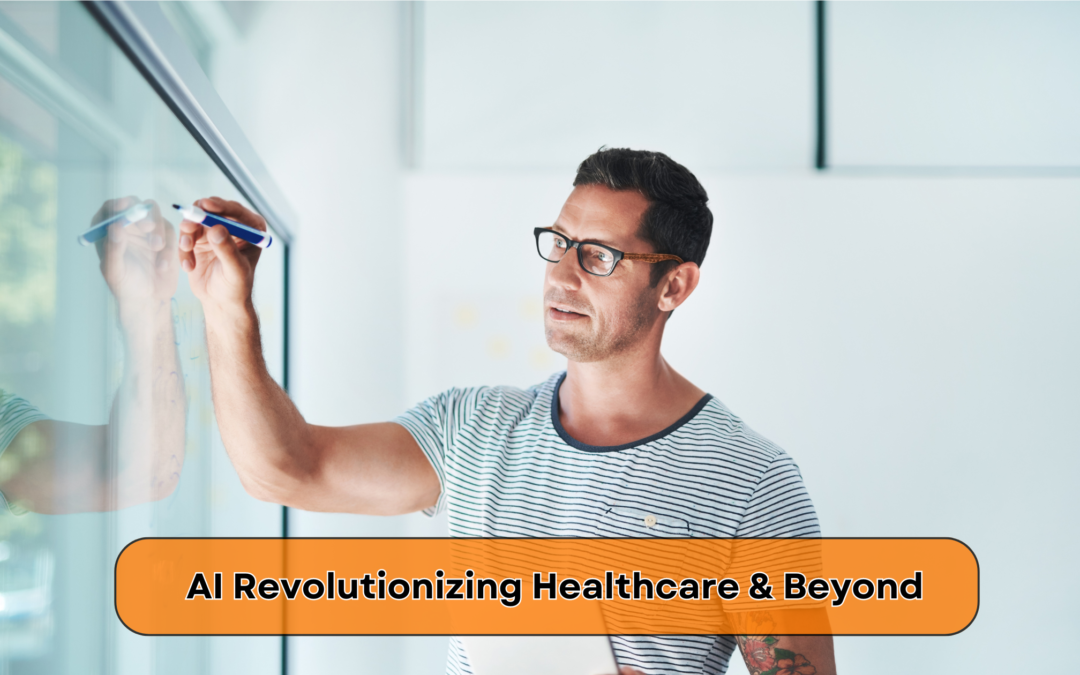Key Takeaways
- Enhanced Decision-Making and Precision
- Elevated Patient Engagement
- Streamlined Health Data Management

Introduction
In the quickly changing tech scene, generative artificial intelligence arises as a brilliant illustration of progress, giving a review of a future where man-made reasoning changes each feature of our reality. Explicitly inside medical services, generative computer based intelligence is nearly changing how essential consideration suppliers (PCPs) draw in with patients, handle information, and settle on vital decisions We’ll investigate the various ways generative artificial intelligence is going to further develop medical care administrations, improve on tasks, and, eventually, advance a more included and better local area.
Enhancing Decision-Making with Precision
Generative computer based intelligence isn’t just about mechanizing assignments; it’s tied in with expanding the dynamic abilities of medical care suppliers. Overwhelmingly of clinical information, including continuous updates from worldwide wellbeing data sets, generative computer based intelligence empowers PCPs to make more educated, exact, and compelling treatment choices.
This level of analysis, which can uncover insights far beyond human capacity, promises to significantly improve treatment outcomes and patient care quality.
Elevating Patient Engagement
Today’s healthcare landscape demands more than just periodic check-ins. Patients seek active engagement in their health management, and generative AI is here to deliver. Through customized updates, progress representations, and wellbeing risk forecasts, generative computer based intelligence devices keep patients educated, spurred, and proactive in dealing with their wellbeing.
This continuous commitment encourages a more grounded patient-supplier relationship as well as enables patients to assume responsibility for their prosperity.
Expanding Access to Healthcare Services
Openness stays a squeezing challenge in medical care, especially in remote and underserved networks. Generative man-made intelligence can possibly overcome this issue by conveying customized wellbeing warnings and data straightforwardly to patients, no matter what their area.
This democratization of medical services data can essentially further develop admittance to mind, making wellbeing counsel and direction more impartial and inescapable.
Streamlining Health Data Management
The managerial weight of overseeing broad patient information can be overpowering for medical care suppliers. Generative computer based intelligence offers an answer via robotizing the association and organizing of wellbeing information.
This not just upgrades the proficiency of wellbeing information the board yet in addition permits PCPs to zero in a bigger number of on persistent consideration as opposed to regulatory undertakings, further developing by and large medical services conveyance.
Predicting Risks and Personalizing Interventions
Generative artificial intelligence succeeds in examining electronic wellbeing records (EHR) to anticipate patient results with amazing precision. This prescient demonstrating capacity empowers early mediations, customized care designs, and designated wellbeing the executives techniques, essentially working on quiet results and decreasing the probability of unfriendly occasions.
Optimizing Population Health Management
In the mission to close mind holes and further develop medical care quality, generative man-made intelligence fills in as an amazing asset for populace wellbeing the executives. By recognizing in danger populaces and upgrading care conveyance, artificial intelligence driven bits of knowledge can improve execution in quality installment programs and guarantee a more proficient distribution of medical services assets.
Streamlining Medical Advice and Triage
Generative artificial intelligence can likewise alter how essential consideration is conveyed by giving solid clinical guidance to normal side effects. This innovation can assist with focusing on PCP arrangements for additional intricate cases, subsequently advancing medical services conveyance and guaranteeing patients get the proper degree of care.
Enhancing Resource Allocation through Data Analysis
By dissecting usage information from EHRs, generative man-made intelligence can help medical services rehearses decide the best staffing levels and asset designation. This information driven approach guarantees that essential consideration rehearses are exceptional to productively address patient issues.
Integrating Device Data for Comprehensive Monitoring
The coordination of wearable wellbeing gadget information into EHRs, worked with by generative computer based intelligence, empowers a more comprehensive way to deal with patient checking. This consistent information mix permits care groups to watch out for patient wellbeing, making constant acclimations to treatment plans on a case by case basis.
Looking Ahead: The Future of Generative AI in Healthcare
As we stand on the cusp of another time in medical services, the conceivable outcomes presented by generative simulated intelligence are both energizing and extraordinary. From further developing direction and patient commitment to smoothing out managerial cycles and improving wellbeing results, the effect of generative simulated intelligence in medical care is significant and expansive. As we proceed to investigate and embrace these advances, the eventual fate of medical services looks more splendid, more effective, and progressively understanding focused.
All in all, generative artificial intelligence addresses an essential change in medical care, offering imaginative answers for longstanding difficulties. Its applications, going from choice help and patient commitment to wellbeing information the board and ongoing condition support, feature the flexible and extraordinary capability of man-made intelligence in medical services.
As we anticipate its proceeded with advancement, the commitment of generative man-made intelligence in improving medical services conveyance and patient results is obviously encouraging. Drawing in with this innovation today implies being a piece of molding a better, more effective, and comprehensive medical services framework for later.
Conclusion
In conclusion, generative artificial intelligence (AI) presents a transformative opportunity for the healthcare industry, revolutionizing how medical services are delivered and improving patient outcomes. By leveraging advanced algorithms and data analytics, generative AI enhances decision-making for healthcare providers, elevates patient engagement, expands access to healthcare services, streamlines health data management, predicts risks, personalizes interventions, optimizes population health management, and streamlines medical advice and triage. Furthermore, it enhances resource allocation through data analysis and integrates device data for comprehensive monitoring. Looking ahead, the future of generative AI in healthcare appears promising, with continued advancements expected to shape a more efficient, patient-centered healthcare system. Embracing this technology today means contributing to the creation of a better, more inclusive healthcare ecosystem for the future.
MarkiTech has various subsidiaries with products and services targeted towards digital healthcare and telehealth/telemedicine and virtual clinic with laser focus on helping seniors age in place and help their caregivers.
Sensights.ai is a company focused on remote patient monitoring and aging solutions, which utilizes artificial intelligence to track the health of patients and keep a round-the-clock connection between caregivers and patients.
As well, Veyetals uses rPPG and AI modeling algorithms to capture the light reflected by the blood vessels under a patient’s skin to measure vitals anytime, anywhere. Lastly, we are now launched our latest Mental Health AI Scribe tool called CliniScripts.com



